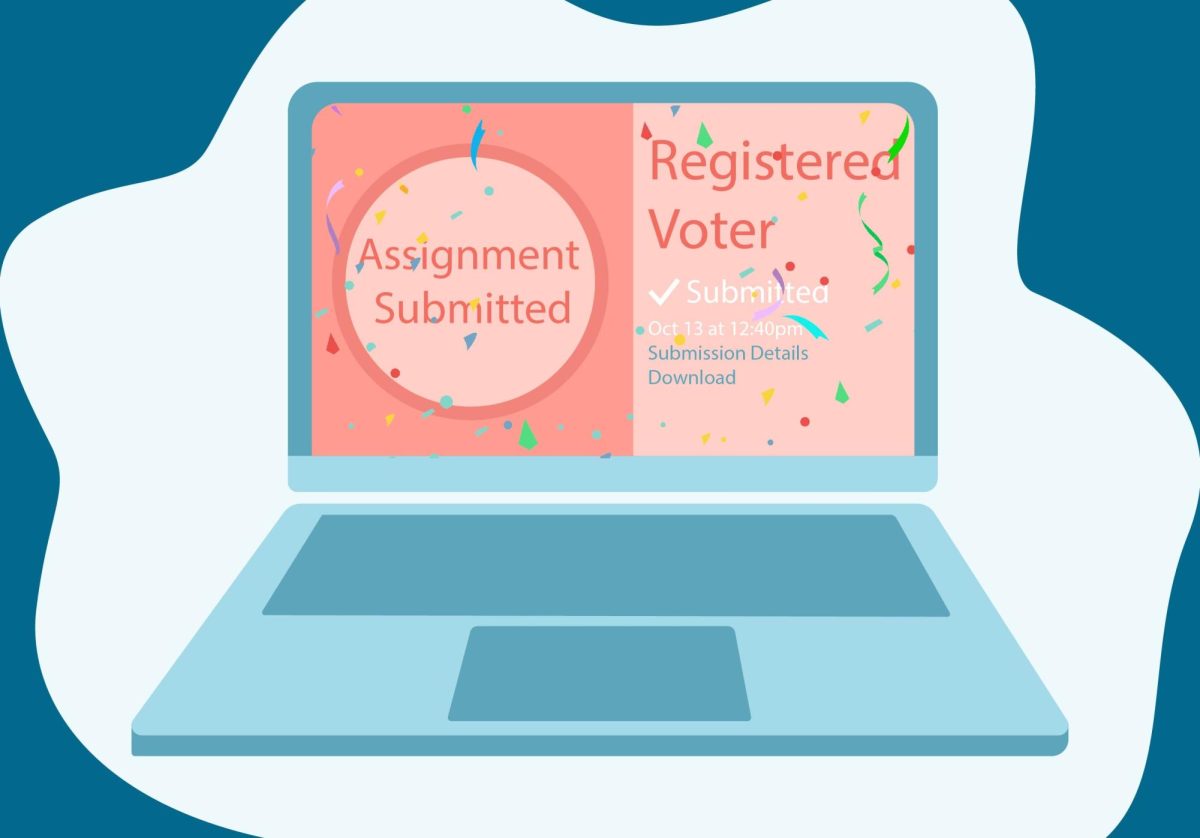Even though she knew her time as a graduate student at the University of Minnesota would be unfunded, Layal Almosa said she was eager to apply.
“Two of my brothers studied at this school. My dad graduated from it with his Ph.D. It’s just something that reminds us of home,” Almosa said. “But no one I knew was applying to it.”
People were hesitant to apply to a program that didn’t guarantee funding. Aspiring international students, Almosa said, didn’t even consider it.
Most graduate students are expected to teach undergraduate classes and support faculty research as they attend their own courses, work toward their thesis or dissertation and pursue publication in their field. On top of these demands, graduate students also juggle social lives, professional connections and networking, families and children, physical and mental health needs and more.
Between 2011 and 2019, the number of people enrolled in graduate and professional programs in the United States increased by 8.1%. In fall 2020, 3.1 million students attended graduate programs.
Given the enormous role graduate students play in a university’s ecosystem, a growing number of programs in different fields are fully or partially funding their students. Full funding is most commonly provided through guaranteed teaching or research assistantships for a certain number of years, for which graduate students are paid (or, more commonly, underpaid) with a yearly stipend.
At the University, every student pursuing a doctorate in English or a Master of Fine Arts (MFA) in Creative Writing with the English Department is fully funded. Many Master of Arts (MA) students are not.
“They tell you that from the beginning. They only say that you can get funded, kind of, if you get lucky,” said Almosa, who is in the first year of her MA program.
Without formal funding, MA students are forced to rely on massive loans to pay their tuition, fees and living and material costs. As full-time students, they have no time to work jobs outside of the University.
“The first semester I really was kind of miserable because all I could think about was this loan,” Almosa said. “And I was just thinking, ‘Okay, so this is just one semester. What about the next four? And what if I don’t graduate in two years?’”
Almosa’s program is competitive and well-recognized. The University was ranked in 2021 as having the 32nd best graduate school for English in the United States. Among public universities on the list, the University ranks in the top 25.
Yet the University doesn’t guarantee either assistantship positions or fellowship funding for their English MA students. For Almosa and her peers, this leads to alienation and isolation in their program, where they study alongside fully-funded doctoral and MFA students.
“We sit in the same classes, like, I literally sit with six other students that are totally funded,” Almosa said. “They’re paid and everything and we take the same exact classes. But I pay for mine. They don’t.”
Because funding is provided through employment as a teaching or research assistant, funded students can receive certain employment benefits such as paid family and medical leave, health care and more.
Unfunded students are cut off from these benefits.
“We have zero benefits. If you want to be on the health plan, you have to pay from your pocket a good amount of money,” Almosa said. “But when you’re funded, it comes as a bonus as well that you do get health care.”
When teaching assistantships do, by chance, open up, they can change an unfunded student’s entire semester.
After spending her first semester without funding, Almosa lucked into a teaching assistantship in the spring semester after a professor’s longtime TA received their doctorate and graduated.
The timing couldn’t have been more perfect: just a few weeks ago, Almosa had a baby. As a University employee, she was able to take six weeks of paid parental leave.
“I’m grateful that this semester I had this opportunity,” Almosa said. “I’m only imagining: if I didn’t have this position, what would I be doing?”
Many programs, like the Department of Chemistry, guarantee funding to all graduate students in good academic standing. Others, like the Department of Computer Science and Engineering, guarantee full funding for Ph.D. students. Most commonly, applicants are told that they will have opportunities for funding through assistantships and fellowships, with no guarantees.
Funding rates and a program’s stipend are often deciding factors in a competitive application process. By not guaranteeing funding for all students, or by providing mixed messages, we drive away applicants who can’t forgo their income for anywhere from a semester to several years.
Despite the flaws in the graduate assistantship funding model — particularly in its failure to provide guaranteed benefits and encourage marginalized applicants — it does allow many graduate students to pursue a fully-funded education.
Such funding means a lessened burden on the student, who will have less long-term debt and be less likely to leave the program due to financial insecurity. It increases the availability of graduate education to lower-income applicants, people with children or other caregiving responsibilities, international students and the ever-growing number of people who already have student loan debt from their undergraduate degrees and probably aren’t looking for any more.
So, why shouldn’t full funding be guaranteed for every single graduate student?
Almosa and other MA students have spoken with people in their department. Responses from professors are almost universally supportive. They express regret she and other MA students aren’t funded. They wish it could change. They know it’s unfair.
“But at the same time, I kind of wonder: so whose hands is this decision in?” Almosa said. “We’re only a couple of students. Why can’t this change?”


















